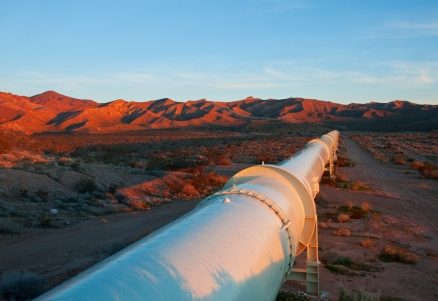ALEXANDRIA: “It’s time for us to walk the talk,” said Ahmed El-Wakil, head of the Alexandria Chamber of Commerce on Wednesday at the Euro-Mediterranean Trade and Investment Summit held in Egypt this year.
El-Wakil called on the governments of Egypt and the European Union to help hasten the recovery process by taking three crucial steps: renewing support for those who want to invest in the Mediterranean countries by ensuring sustainability, calling upon countries to open trade services, and encouraging development institutions and donors to increase business opportunities and contributions.
“We meet today at a time where the EU is 27 countries, at a time when all countries’ trade and investments are at [their] lowest, and as many countries in the [region] are also pushing for democracy and change,” he said.
“We are doing our utmost fighting against time, with support of our governments and private businesses; we can overcome this period easily,” he added.
El-Wakil, along with leaders from the Euro-Mediterranean business alliance, stressed the importance of boosting small and medium enterprises as well as enhancing the overall businesses environment to make the region’s diverse and high-yielding markets attractive to investors.
Speaking on behalf of Egypt’s Prime Minister Essam Sharaf, who was unable to attend, Trade Minister Mahmoud Essa said the government is currently missing the “ability” to create suitable environments for the business sector, as well as create a balance between education and jobs.
He added that Egypt has “a workforce that is eager and willing to work,” and it is vital for the government to cooperate with the private sector to provide more jobs and facilitate business.
Galal Zorba, president of BusinessMed and MedAlliance Board, reiterated a similar message: “We demand that governments work faster to establish jobs, facilitate business, and get things moving.”
While the intention to strengthen and broaden business opportunities unquestionably exists, investors and businessmen continue to face obstacles especially in the Euro-Mediterranean region, where many believe countries should be more open to each other.
“The Mediterranean region is going through changes,” said Alessandro Barberis, president of EuroChambers and co-president of MedAlliance. “We take the opportunity of the Arab spring to improve economic opportunity, establish new partnerships and share responsibilities with the southern Mediterranean countries,” he added.
To achieve these goals and create more job opportunities for the citizens of the region, many of whom are young and able youth willing to work, several imperative steps must be taken.
“The investment in the Mediterranean program today is celebrating real initiatives that will ensure there are real investments and deals and results to be seen on the ground,” he said. “However, important obstacles still lie ahead.”
“There are heavy regulations, corruption and inefficiency in education systems; all of these can decrease foreign direct investments in a country,” he added.
Barberis underlined the need for more “cooperation and sharing” between Europe and Mediterranean nations. Despite the crisis the EU faces, European businesses continue to invest in the Mediterranean region, which highlights the importance of its potential.
Stimulating SMEs
Barberis stressed that making sure SMEs can develop in the region is key to curing the region’s ailing economy.
“We want to create the right conditions to develop opportunities and put these investments and ideas to practice,” he said.
Murat Yalcintas, president of Association of the Mediterranean Chambers of Commerce and Industry (ASCAME), said establishing a “healthy environment for SMEs” can help create 50 million jobs in the region over the next few years.
Yalcintas, who expressed his support for Egypt’s January 25 Revolution and the calls for democracy resonating across the global coming from Tahrir Square, said eliminating corruption and introducing “fair and just” business policies is vital to reshaping the future of the entire region.
“We believe if you want to develop further trade and investments in Mediterranean region, [then the] first step is to take down all trade barriers in the region, create a secure and stable investment environment, and eliminate all procedures that can discourage investors,” he added.
According to Osama Saleh, chairman of Egypt’s General Authority for Investment (GAFI), $110 million worth of European investments were injected in various sectors of Egypt’s market after January uprising, during which masses demanded an end to corruption, equality, job opportunities and justice.
“Despite the current transition, government efforts haven’t stopped a single day,” he said. “GAFI is confirming the government’s commitment to a free economy.”
Saleh added that hosting this year’s summit in Egypt after the revolution shows the optimism and trust the region has for the country’s promising market.
The evening’s continuation of the summit was not only for members of the Euro-Mediterranean alliance.
Sergey Petlyakov, consul general of the Russian Federation in the city of Alexandria, came on behalf of his country.
“Although Russia is not a Mediterranean country, I’d like for us to be a part of this alliance,” he told Daily News Egypt. “There are some Black Sea nations that are part of the alliance and Russia is also a Black Sea country, so I am interested in normalizing business relations.”
Petlyakov emphasized that such a partnership would prove to be beneficial for Russia as well as the Euro-Med business alliance.



